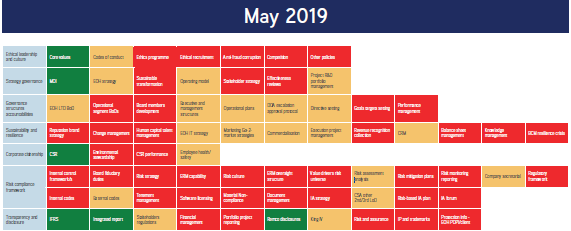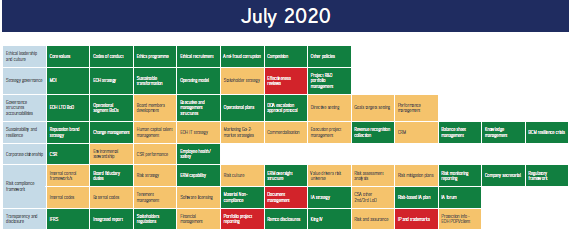A year ago, EOH was just emerging from a defining crisis. Corruption had caused massive damage to our reputation, prompted a loss of confidence from investors and lenders, saddled us with huge bank debt, and resulted in a declining cash-realisation rate and return on our assets.
In response to that crisis we focused on three priorities: re-establishing our credibility; committing to widespread transparency and articulating a clear strategy; and improving our liquidity. We made real, tangible progress in each of those areas. Then, in March 2020, another crisis hit.
The impact of the COVID-19 pandemic and of our government's response put clients and ourselves under pressure, and resulted in an unprecedented macroeconomic environment. We had to cope with reduced sales while tackling a high debt burden, and adjust to remote working while managing employee wellbeing. That said, the COVID-19 crisis presented some opportunities with respect to our ability to provide our customers with innovative technological support through our solutions.
Despite moving from one crisis to another, we have made real, steady progress in terms of transparency, liquidity and credibility. We have seen a meaningful improvement in EBITDA performance, the disposal of non-core units is ongoing, our business is more focused and less complex, our balance sheet is improving and the business is now cash-positive.




